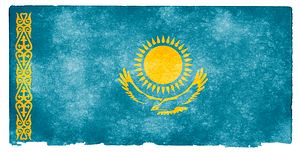A pair of trials ended Monday in Kazakhstan, resulting in life sentences for seven men who took part in a shooting spree in Aktobe in June and five years each for two men who tried to organize protests in Atyrau last spring.
It has been a difficult year for Kazakhstan, socially and economically. Both court cases settled Monday — in addition to the recent death sentence for the Almaty shooter, Ruslan Kulikbayev, and 21 years for Tokhtar Tuleshov, accused of plotting a coup and masterminding the spring protests across the country — expose aspects of social discord, which makes the unity-obsessed powers-that-be in Astana uncomfortable and uncertain.
The shooters in Aktobe were described by the authorities as terrorists; their violent theft of weapons from a hunting shop and subsequent shooting spree were attributed to Islamic extremism and Salafism. In response, the state established a new ministry — the new Minister for Religious and Civil Society Affairs Nurlan Yermekbayev made Astana’s case in an op-ed on The Diplomat. Yermekbayev called the Aktobe violence “a stark wake-up call for our society that has prided itself on tolerance and inclusive growth since we gained our independence 25 years ago.”
While Kazakhstan’s economic growth since gaining independence far outstrips its Central Asian neighbors, Astana’s tolerance and inclusiveness is a point to be debated.
The ministry, Yermekbayev wrote, has three responsibilities: ensuring the country’s secularity, strengthening civil society, and focusing on the “development of young people within” Kazakhstan. The focus on younger Kazakhs is not misplaced, even if the offerings are thin: “… reconnecting disenfranchised groups back into Kazakhstan’s society through economic, employment, and cultural programs. This last initiative is especially important as the biggest recruiting tool for extremist groups is a feeling of disenfranchisement.”
The minister goes on to say, “This gives us a special responsibility to make sure all our young people feel part of our society and can contribute, through their talents and energy, to achieving our country’s long-term goals.”
However Kazakhs cannot, it seems, disagree too loudly in public about those goals or the state’s policies for achieving them.
Max Bokayev and Talgat Ayan, sentenced to five years each on Monday for “inciting social unrest, spreading false information and disrupting public order and will,” would probably argue against Astana’s claimed tolerance.
Mihra Rittmann, a Central Asia researcher for Human Rights Watch said before the trial that “Expressing a negative opinion about government policy is not a crime” and that the two men shouldn’t be facing prison time “for peacefully exercising their right to protest or for encouraging others to do the same.”
As Kazakhstan looks toward its 25th independence anniversary on December 16 — also the fifth anniversary of the Zhanaozen protests and violence — the state could be said to be experiencing a quarter-century crisis. Economic hardship puts strain on what political scientists would call the social contract, in which Kazakhs citizens cede a degree of individual independence in exchange for stability and prosperity. But not all are convinced that the state knows best.
As Aigerim Toleukhanova concludes in her article for EurasiaNet on the verdict, in the end the very policy that the two men were organizing against was ultimately ditched by the state, a sour irony, indeed:
In effect, Ayan and Bokayev have been jailed for holding entirely peaceful protests against a law that even the government and parliament have been moved to agree was not worthy of implementation.

































